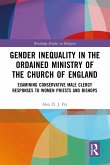The conscientious regard thus displayed for Paul's alleged injunction of silence in the church on the part of women deserves our highest respect. But with a considerable knowledge of the nature and extent of women's work on the missionary field, the writer has long believed that it is exceedingly important that that work, as now carried on, should either be justified from Scripture, or if that were impossible, that it be so modified as to bring it into harmony with the exact requirements of the Word of God. For while it is true that many Christians believe that women are enjoined from publicly preaching the Gospel, either at home or abroad, it is certainly true that scores of missionary women are at present doing this very thing. They are telling the good news of salvation to heathen men and women publicly and from house to house, to little groups gathered by the wayside, or to large groups assembled in the zayats. It is not affirmed that the majority of women missionaries are engaged in this kind of work, but that scores are doing it, and doing it with the approval of the Boards under which they are serving. If any one should raise the technical objection that because of its informal and colloquial character this is not preaching, we are ready to affirm that it comes much nearer the preaching enjoined in the great commission than does the reading of a theological disquisition from the pulpit on Sunday morning, or the discussion of some ethical or sociological question before a popular audience on Sunday evening.
Dieser Download kann aus rechtlichen Gründen nur mit Rechnungsadresse in A, B, BG, CY, CZ, D, DK, EW, E, FIN, F, GR, H, IRL, I, LT, L, LR, M, NL, PL, P, R, S, SLO, SK ausgeliefert werden.









